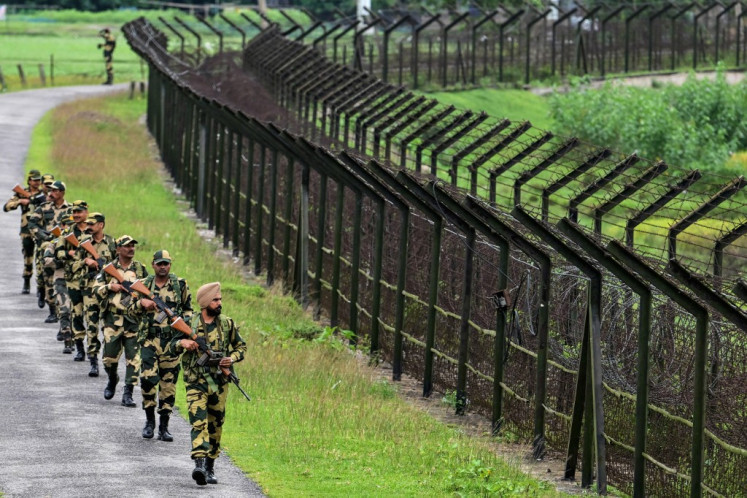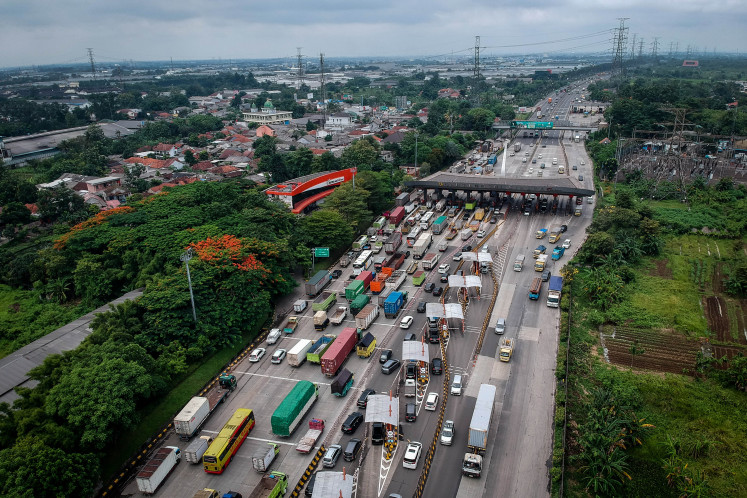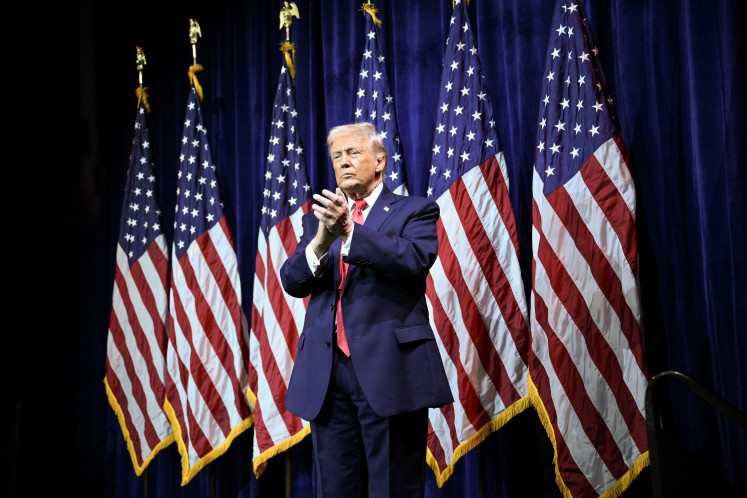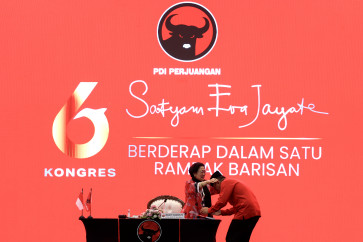Popular Reads
Top Results
Can't find what you're looking for?
View all search resultsPopular Reads
Top Results
Can't find what you're looking for?
View all search resultsIndonesia’s anticorruption fight: Serving politics, not justice
Instead of strengthening the law, lawmakers are now seeking to weaken it, as indicated in the move to revise the Anticorruption Law, which will shield powerful decision-makers from accountability as long as they avoid direct bribery.
Change text size
Gift Premium Articles
to Anyone
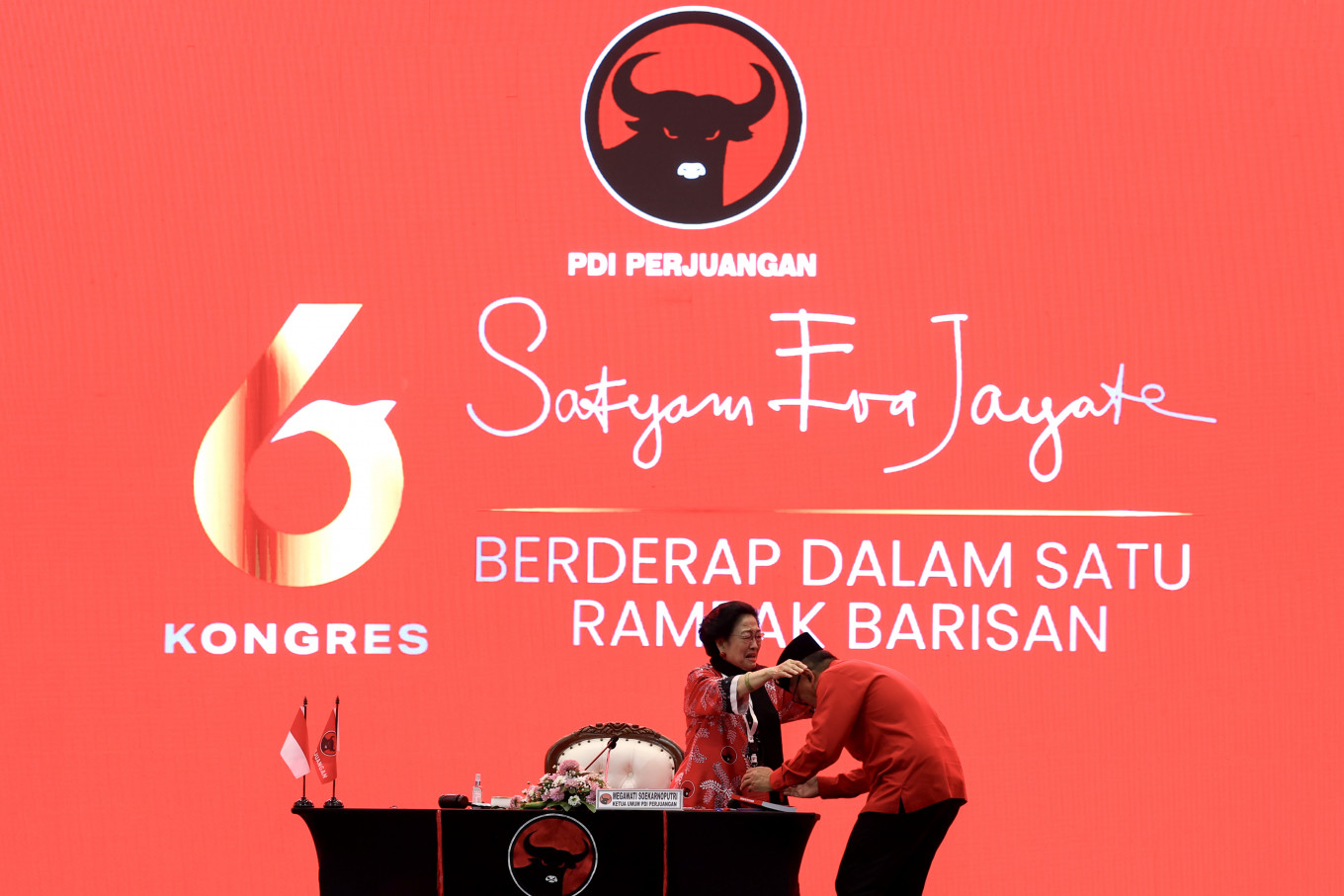 Indonesian Democratic Party of Struggle (PDI-P) chairwoman Megawati Soekarnoputri welcomes secretary-general Hasto Kristiyanto on Aug. 2 before the closing session of party congress in Nusa Dua, Bali. Just days before his appearance at the congress, Hasto, who was convicted of bribery on July 25, received an amnesty from President Prabowo Subianto. (Antara/Monang Sinaga)
Indonesian Democratic Party of Struggle (PDI-P) chairwoman Megawati Soekarnoputri welcomes secretary-general Hasto Kristiyanto on Aug. 2 before the closing session of party congress in Nusa Dua, Bali. Just days before his appearance at the congress, Hasto, who was convicted of bribery on July 25, received an amnesty from President Prabowo Subianto. (Antara/Monang Sinaga)
A
year into the Prabowo Subianto - Gibran Rakabuming Raka administration, Indonesia’s fight against corruption stands at a dangerous crossroads. The language of reform still fills speeches, but the practice of power tells another story. Behind promises of “clean governance” lies a quiet but profound transformation: Law enforcement is no longer serving justice; it is serving politics.
Over the past 12 months, the Attorney General’s Office (AGO) and the National Police have amassed extraordinary authority. On paper, this looks like progress—a stronger hand to prosecute wrongdoing. In reality, they have blurred the line between justice and power. Cases against opposition figures move swiftly, while those involving the ruling coalition’s inner circle fade into procedural limbo.
Corruption has ceased to be merely a crime; it has become a political tool. The law, once meant to protect citizens, now disciplines adversaries and rewards loyalty. Civil society groups call this “judicial capture,” the moment when executive power seeps so deeply into the courts and prosecution that impartiality dies. When prosecution becomes negotiation, justice loses its moral core.
This dynamic was on full display when Prabowo granted sweeping clemency on July 31 - abolition for former trade minister Thomas Lembong and amnesty for 1,116 others, including Indonesian Democratic Party of Struggle (PDI-P) secretary-general Hasto Kristiyanto, who was still on trial for corruption. Never before had clemency been extended to defendants whose cases were unfinished.
Politically, Prabowo crossed a crucial line, even if his clemency decision remained legally within his rights. Corruption watchdogs such as Indonesia Corruption Watch (ICW), Transparency International Indonesia (TII) and IM57+ warned that clemency without clear standards turns mercy into political currency. The timing was hardly coincidental. It came just as relations between the ruling coalition and the PDI-P began to thaw. “National reconciliation,” once a noble phrase, now sounds like a euphemism for political barter.
Beyond the courtroom, conflicts of interest have spread through the bureaucracy. Programs like the free nutritious meal program and the Red and White Rural Cooperatives initiative were launched as pro-people initiatives but are now vehicles for elite competition. Reports suggest procurement chains and distribution channels are dominated by political allies.
The same pattern extends to state-owned enterprises (SOEs). Dozens of politicians now sit on their boards, appointed without transparency or clear qualifications. What is justified as “reward for service” is the quiet normalization of state capture: political loyalty opening doors to public resources.





